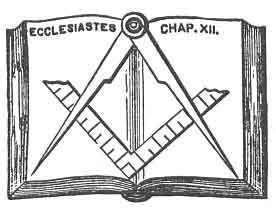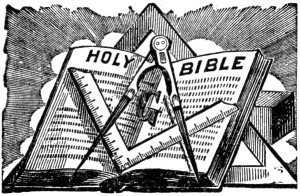p. 446
Fourth Part of the Code of Illuminees.
The object of the degree of Minor Illuminee is not only to dispose the Brethren more and more for the secrets which have not yet been revealed to them; but it has also in view their preparation for presiding over the Minerval Academies in which they have already shown their talents, and their zeal for the Sect. The means which are to produce this double effect are worthy of remark, on account of one of those artifices which Weishaupt alone could have invented.
The Minor Illuminees hold sittings similar to those of the Minerval Academy. The President must necessarily be one of those adepts who, initiated in the higher mysteries of Illuminism, have attained the degree of Priest. He, alone having any knowledge of these higher mysteries, is particularly enjoined to keep his pupils in the persuasion that beyond the degree in which he is there is no farther secret to impart to them. But he is to spare no pains to infuse those opinions into their minds, of which the last mysteries are but the development. The Minor Illuminees are imperceptibly to become as it were the inventors and authors of Weishaupt’s principles; that, believing them to be the offspring of their own genius, they may more zealously defend and propagate them. “It is necessary,” says the code, “that the adept look upon himself as the founder of the new Order,” that hence he may conceive a natural ardor for its success. To effectuate this object, an exordium is appropriated to the initiation in this degree. It is one of those discourses which, replete with voluntary obscurities, presents the most monstrous errors to the mind, but expressly mentions none. The veil which is thrown over them is neither coarse enough to hide, nor fine enough clearly to chew them; all that the new adepts can observe at a first hearing is, that the object of the Order is worthy of admiration and zeal; that an ardent enthusiasm should inflame the mind of the young adept for the attainment of the grand object of all the labours of Illuminism; that the enjoyment of this happiness depended much more on the actions than on the words of the adepts. What then is this object, and what are the obstacles that are to be overcome? Of what species are those actions, those labours of the adept, which are to forward its views? It is in these points that enigma and obscurity veils the intent, and it is here that genius is to invent.
p. 447
[paragraph continues] That the errors of the Sect might be considered as originating with the adepts, it goes on to say, the same discourse shall serve in future as a text for all those which the Brethren shall prepare for the meetings of the Order. The President will select the obscure passages, which may lead to the development of those opinions which he wishes to instil into his pupils; such will the subjects chosen for their themes, and he will carefully exact practical conclusions. 1 But to give the reader a better idea of what these themes or commentaries are to be, we shall quote a part of the original text.
“There certainly exist in the world public crimes which every wife and honest man would wish to suppress. When we consider that every man in this delightful world might be happy, but that their happiness is prevented by the misfortunes of some, and by the crimes and errors of others; that the wicked have power over the good; that opposition or partial insurrection is useless; that hardships generally fall upon men of worth;—then naturally results the wish of seeing an association formed of men of vigorous and noble minds, capable of resisting the wicked, of succouring the good, and of procuring for themselves rest, content and safety—of producing all these effects, by means drawn from the greatest degree of force of which human nature is capable. Such views actuating a Secret Society would not only be innocent, but most worthy of the wise and well-inclined man.” 2

Moe is the founder of GnosticWarrior.com. He is a father, husband, author, martial arts black belt, and an expert in Gnosticism, the occult, and esotericism.




